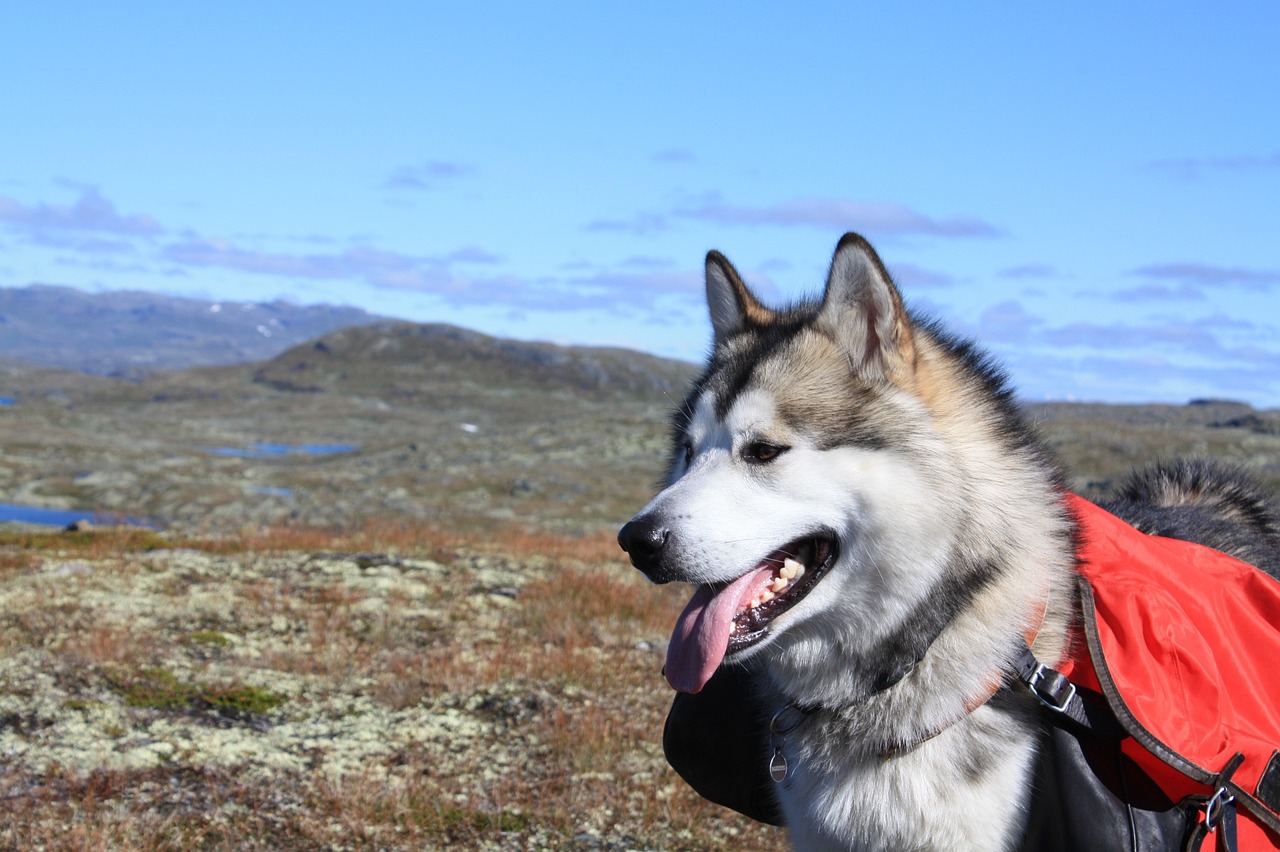Alaskan Malamutes are a noble breed, cherished for their endurance, strength, and friendliness. However, like all dog breeds, they have a unique set of health risks that owners should be aware of. Understanding these risks will help you provide the best possible care for your canine companion. Here are the five most common health issues seen in Alaskan Malamutes, along with the signs that could suggest your dog is dealing with these problems.

1. Hip Dysplasia
Hip dysplasia is a genetic disorder prevalent in many large dog breeds, including Alaskan Malamutes. The condition is characterized by the abnormal formation of the hip joint, leading to instability, pain, and eventual arthritis.
Signs to look for include reluctance to climb stairs or jump, difficulty rising from a lying or sitting position, an obvious limp or ‘bunny-hopping’ gait when running, and a noticeable decrease in activity levels. Early intervention is essential in managing this condition, so if you notice these symptoms, it’s crucial to consult with a vet.
2. Chondrodysplasia (Dwarfism)
Chondrodysplasia, commonly referred to as dwarfism, is a health issue seen in Alaskan Malamutes. This genetic disorder affects the growth and development of the dog’s bones, leading to short limbs compared to the size of the body.
In puppies, signs include smaller size compared to littermates, bowed front legs, and noticeably short, thick bones. While it can be visually apparent, it’s important to get a proper diagnosis from a vet, as other health issues can cause similar symptoms. Dwarfism doesn’t necessarily affect the dog’s lifespan, but it can lead to other complications like early-onset arthritis.
3. Hypothyroidism
Hypothyroidism is a common health issue in Alaskan Malamutes. This condition is caused by low production of thyroid hormones, leading to a slow metabolism.
Signs of hypothyroidism can be subtle initially but may include weight gain despite normal eating habits, lethargy, hair loss, dry skin, and cold intolerance. If your Malamute starts to show these symptoms, consider scheduling a vet visit. With proper medication, hypothyroidism can be well-managed, allowing your Malamute to live a normal, healthy life.
4. Inherited Polyneuropathy
Inherited Polyneuropathy (IP) is a neurologic disorder seen in Alaskan Malamutes. This condition progressively affects the dog’s ability to move, starting with hind limb weakness and gradually moving to the forelimbs.
Signs of IP include a change in bark, difficulty swallowing, weakness in the rear limbs, high stepping, and incoordination. This condition can be hard to diagnose, as many of these symptoms overlap with other health issues. However, it’s important to seek veterinary help if you notice these signs. While there’s no cure for IP, supportive care can help manage the symptoms and improve quality of life.
5. Eye Problems
Alaskan Malamutes are susceptible to a range of eye problems, including cataracts, progressive retinal atrophy (PRA), and corneal dystrophy. These issues can lead to partial or total vision loss if not treated timely.
Signs of eye problems can include cloudiness in the eye, clumsiness or bumping into objects, reluctance to go into dark areas, excessive tearing, redness, or constant pawing at the eyes. Regular eye check-ups are essential for early detection and treatment.
In conclusion, awareness and early detection are vital in managing the health issues commonly found in Alaskan Malamutes. Regular veterinary check-ups, a balanced diet, and ample exercise can help maintain your Malamute’s health. If you notice any of the symptoms mentioned above, don’t hesitate to consult with your vet. Remember, your vigilant care can make a significant difference in your Alaskan Malamute’s life.
 Toledo, United States.
Toledo, United States.